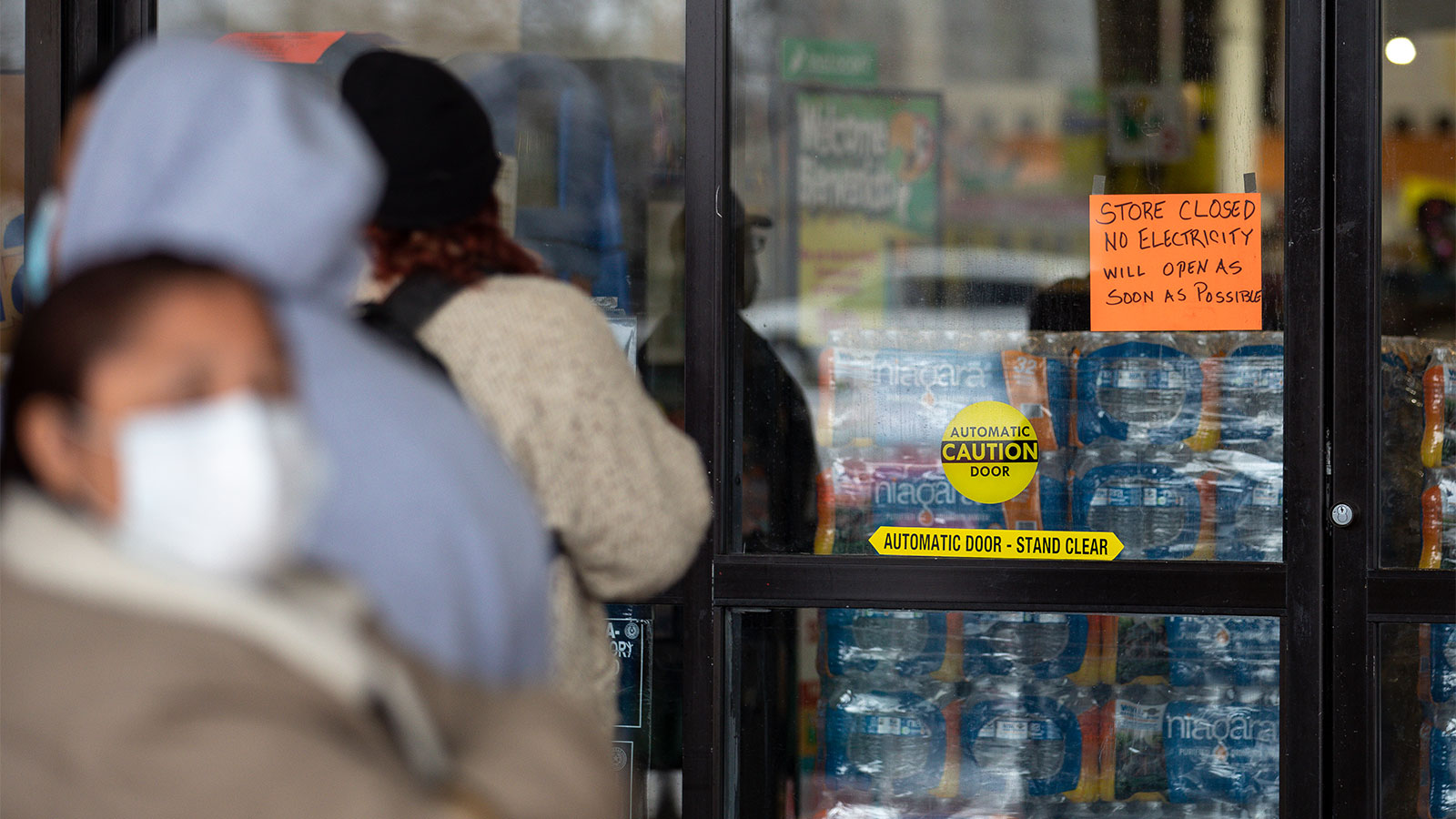On Monday, as record-breaking below-freezing temperatures overcame the entire state of Texas, county officials told residents to run their faucets continuously to prevent their pipes from freezing. But by Wednesday, hundreds of thousands didn’t even have water to run. On Thursday, some hospitals even reported water shortages.
As potable water reached dangerously low levels across the state, water treatment in some counties became nonexistent due to power outages. More than 11 million people were left with compromised access to drinking water, with officials advising them to boil water before using. The catch is that power outages deprived many of the means of following this guidance — and those were the ones lucky enough to have water at all.
For many Texans, the failure of the state’s infrastructure to withstand extreme weather did not come as a surprise.
“The problem in Texas right now is that we are not investing in our infrastructure,” said Adrian Shelley, a Texas-based director of the consumer advocacy group Public Citizen. “And the laissez-faire approach to industrial regulation that allows the intermingling of industrial pollutants with our water and air makes it worse.”
As the COVID-19 pandemic caused home water use to skyrocket last year, Texas lagged behind other states in enforcing clean water regulations. According to Environmental Protection Agency (EPA) data Texas has the most widespread water quality violations in the U.S. The state accounted for nearly 10 percent of the country’s Safe Drinking Water Act, or SDWA, violations last year. With 442 violations receiving the SDWA’s most severe “serious” designation, public water systems in Texas were responsible for roughly four times as many serious violations as New York and California combined. Nevertheless, compared to those two states, Texas pursued less than a quarter of the number of formal enforcement actions, which require public water systems to return to compliance with SDWA standards.
While the state failed to enact enforcement actions, even before this week’s cold snap millions of Texas residents, including those in the Austin, Dallas, and Houston metropolitan areas, faced water shutoffs and boil water notices as everything from brain-eating amoeba to oil pipeline bursts contaminated water sources. And in the tiny city of Brady, radium levels in drinking water have been reported as nine times higher than the EPA limit. Local residents say the tap water can be orange, brown, or even green.
Texas’ water woes made headlines just a week before the recent storm as the state moved to allow oil drillers to apply for permits to use wastewater from oil sites to replenish the state’s aquifers, which are sometimes used for drinking water. At some sites, six times more water than oil is removed from the ground during the drilling process, but the issue with wastewater is its toxicity. To become safe, it requires an extensive treatment process. Scientists and environmental groups are skeptical of the plan because little is known about what risks the water could pose even after treatment if it’s introduced into the state’s water system.
In 2017, Hurricane Harvey showed how easily the state’s water treatment system could become congested when the storm forced hazardous pollution, including human waste, into the state’s bodies of water. Drinking water systems for millions of people were affected as two million pounds of contaminants, including chemical toxins and fecal bacteria, were released into the water supply following spills and disruptions at 800 wastewater treatment plants, threatening the state’s drinking water quality.
In other words, vulnerability to water contamination was a reality for many Texans well before this week’s storm —and it will be long after the snow melts.
“A denial of climate change means no real planning has been done to prepare infrastructure to meet increasingly extreme weather, from hurricanes like Harvey to the current freeze — but also more ordinary heavy rain events that our region faces,” said Kristen Schlemmer, the legal director at the Texas-based water quality advocacy group Bayou City Waterkeeper.
Schlemmer added that communities that disproportionately bear the state’s environmental burdens will continue to feel the worst effects: “The failure to account for the legacy of racism in infrastructure funding will mean low-income communities of color continually bear the brunt of faulty systems in the midst and aftermath of major storms.”



